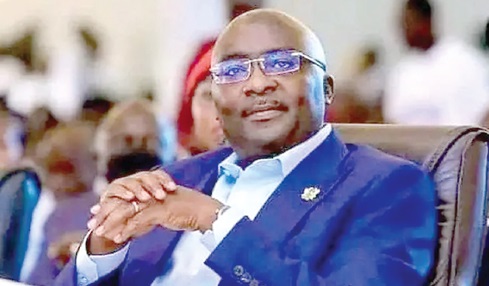According to the latest Global Info Analytics poll (August 2025) of a sample of party delegates, Dr Mahamudu Bawumia leads (52 per cent) the New Patriotic Party (NPP) flagbearer race, followed by Kennedy Agyepong (17 per cent), Bryan Acheampong (three per cent) and Dr Yaw Osei Adutwum (one per cent).
The polls showed 18 per cent as “undecided” and another nine per cent as “did not disclose.”
In observing the enthusiastic and sometimes heated banter between supporters of the various candidates, I cringe.
I worry about the consequences for the party’s constant cry for unity.
But I guess the party will deal with that when the primaries are over, and a candidate is selected. May God give us tomorrow.
Identity politics
Politics is interesting, no matter the country context in which one observes the way it unfolds.
On the one hand, politicians disavow politics of division and any appeals to the identity of voters, be it their age, gender, race, religion, ethnicity, tribe, etc.
But on the other hand, in subtle or sometimes overt ways, they appeal to voters based on those same characteristics.
Then there are voters who, when asked whether a candidate’s identity matters in deciding who to vote for, say no.
In Afrobarometer Round 7 (2017), only two per cent said the main reason for their choice of presidential candidate in the 2016 election was because of “shared ethnicity.”
Again, in the Global Info Analytics poll, the candidate’s religion matters to nine per cent of delegates surveyed, while ethnicity matters to eight per cent.
The size of these numbers, on face value, suggests that other attributes of a candidate matter more than their identity.
So, if politicians eschew appeals to identity and voters claim that it matters little in their choice of candidate when they vote, why then do we see identity politics cropping up in our electoral contests?
In my opinion, it happens because there is still a certain amount of appeal in playing identity politics. In a highly competitive contest, the nine per cent who say in the Global Info Analytics poll that religion matters may be the difference between crossing the finishing line to clinch the nomination or giving a concession speech and pledging unity.
In addition, voters do reward identity politics.
Political parties, the world over, have managed to lock in groups that provide a reliable base of support every election.
This is because such groups have come to believe and accept that certain political parties look out for their interests better than others.
But even as politicians appeal to, and voters reward, identity politics, there is a certain level of public discomfort when it appears too overt and touches on certain types of identity.
For example, no one expresses horror when a politician says, “How can we appeal to middle-class voters” or “women voters,” or the “zongo voters.”
Yet, all these are forms of identity.
It is when the appeal is to ethnicity, tribe or religion that we begin to express our repulsion and assert that these have no place in our politics.
It is precisely for this reason that I believe the comments by one of the candidates in the race have been condemned by certain voices.
As explained by the candidate, the words were misconstrued.
Fair enough, but the implications of the words, as I understood it, suggest that to avoid becoming a “victim of circumstances” and for which the party becomes the casualty, it is better not to elect Dr Bawumia as flagbearer for the 2028 election. I stand to be corrected.
The remaining five months of the primary
Dr Bawumia’s religion and ethnicity are known to all. If we go by Global Info Analytics, ethnicity and religion matter to less than 10 per cent of the delegates polled.
What the poll does not tell us is whether it matters negatively (vote against Dr Bawumia) or positively (vote for Dr Bawumia).
The optimist in me hopes that as the primary season intensifies, what will be important to delegates will be who is best positioned to lead the party to contest the 2028 elections.
The realist in me recognises that this may just be wishful thinking. After all, one of the constant criticisms I have read from certain voices, opposed to Dr Bawumia, is the constant reference to his 2024 performance in the northern regions and the “zongo” communities across the country.
But anyone who takes a fair and dispassionate look at the political landscape beginning 2022 would have to acknowledge that the NPP was up against a country that had turned against the party.
Take a deep dive into Round 9 and 10 of the Afrobarometer survey for validation of this point and it will be difficult to argue that some other candidate could have pulled off a victory for the NPP in 2024.
If we truly eschew identity politics, let our rhetoric show that.
The writer is the Project Director, Democracy Project.

